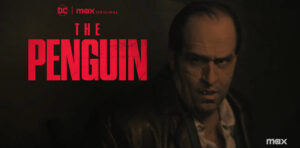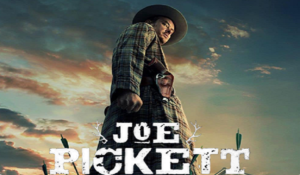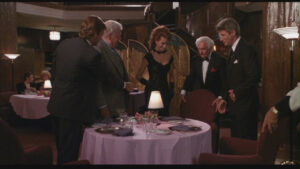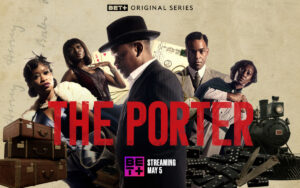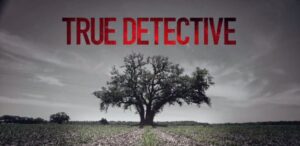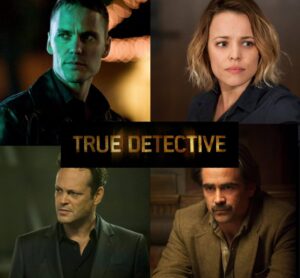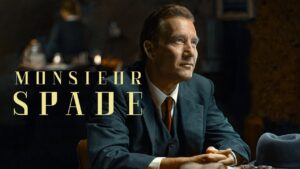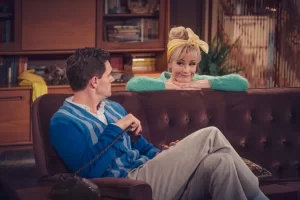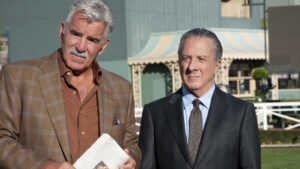I just finished watching the critical acclaimed 2024 Shogun miniseries based on the James Clavell novel. It is an updated version of the 1980 miniseries starring Richard Chamberlain.
Shogun tells the story of John Blackthorn who arrives at the island of Japan as an English merchant hoping to break the Portuguese monopoly on trade. Well, at least that’s the supposed premise but more about that later.
Shogun largely received good reviews from the critics and acclaim from the viewers. There is a lot to like here but it falls tragically short in my opinion. The show goes out of its way to leave the audience in the dark and that ruined it.
Immersion
One of the things that makes a show good is immersion. When I’m watching a show, reading a book, or otherwise engaged in consuming entertainment, I want to feel like I’m part of it all. I want to feel fear for the protagonist, lust for the romantic interest, elation at the victories, sadness at the losses, and all the rest.
The way this is achieved is by including the audience. Let us in. Tell us what’s going on. Shogun spends almost the entire miniseries keeping things from us, I’m guessing so as to spring twists and surprises.
How does Shogun keep us in the dark. Below is a list of things that bothered me, it is not all encompassing but my general thoughts.
What is Kashigi Yabushige Doing?
The first instance we get of being kept in the dark during Shogun involves the possibly loyal servant of Toranaga, Yabushige. He is a schemer. He understands his lord is possibly going to lose the struggle with the counsel and is playing both sides of the divide to assure his survival.
How do we learn about this? Basically, in a series of conversations between Yabushige and his son. We never actually see him carrying out any scheme. We see him all too obviously prevaricating in conversations with Toranaga which a method of exposing his schemes, none of which we actually see.
Near the end he betrays Mariko and Blackthorn by scheming with a rival lord. Do we see him agonizing about this decision, planning it? Basically he’s asked to do a favor for the rival lord, cut to black.
This is a potentially interesting storyline. If we actually got to be in on Yabushige and his plans, to fear for Toranago, Blackthorn, and Mariko. We don’t and I therefore I don’t really care.
Buntaro’s Survival
The finest warrior in the land stays behind to guard the fleeing Toranaga as he escapes Kyoto. We see Buntaro battling off hordes of warrior as he disappears around a corner.
The next time we see Buntaro is when he returns. We are told he joined a band of Ronin who fought there way across the countryside with only he and one other surviving. Wow! I mean, what a fantastic little story. Are there any scenes of it happening? What about the surviving Ronin, is he made a Samurai by Toranaga? He must be a bad ass!
Nope, nada, nothing. Just one line. Why? Probably because the burgeoning romance between Blackthorn and Mariko must come to a shock conclusion with the arrival of her presumed dead husband. What a shame.
The Gardener’s Death
This one was particularly upsetting to me. At Blackthorn’s home there is a gardener. Blackthorn hangs up a pheasant to rot and the smell is so horrible, the gardener takes it down and is executed for disobeying Blackthorn’s directives.
What really happened? We find it out all through exposition. Toranaga has a spy in the village. Yabushige, discussed earlier, is trying to find that spy. Toranaga and the gardener come up with the plan to frame the gardener as the spy and thus stop Yabushige’s investigation.
The gardener is ill and feels he is near the end of his life. He wants to do one last service for his lord and thus takes down the pheasant knowing he will be executive but only after the fake evidence is planted in his home.
Holy moly! What a fantastic little side-story. It tells us everything about loyalty, the culture of Japan, etc. Do we see any of it? Nope, nothing. We just hear about it after it all happened. What a waste. I want to see the planning, the agony of the gardener’s family, the theft, the execution, the reward for loyalty and honor.
Yoshii Nagakado’s Death
The son of Toranaga, Yoshii Nagakado, decides to kill his uncle because the man betrayed Toranaga earlier in the episode. He plans a daring raid of the brothel where the uncle is staying. He enlists compatriots, he carries out his plan. Again, great stuff. I want the anticipation of the attack, knowing Taranaga is opposed, perhaps it is almost discovered at the last minutes.
Again, nope, nothing. We’re at the brothel, the attack happens, Nagakado slips, falls, dies. Sadness. I don’t care! I just don’t care! You didn’t involve me! I didn’t see it coming. I had no rising tension. No chance to care.
The Final Plan
Toranaga surrenders to his peers but in reality, he has a cunning plan. He schemes with his must trusted advisor who commits suicide to make the plan more convincing.
Do we know this plan? Are we let in on it? No, no, and no. It’s all sprung on us as a big surprise. It’s the final insult. Nothing could be clearer: audience, we don’t care about you. We don’t want you involved, just sit there, trust us, it’s going to be great.
Is Shogun Terrible?
No, it’s not terrible. The acting is hit and miss. Cosmo Jarvis as Blackthorn and Anna Sawai as Mariko are unconvincing, bland, boring. Their romance is milquetoast. Everyone else is pretty good with particular credit to Moeka Hoshi as Usami Fuji who absolutely steals every scene she’s in. She does more with a single expression than Sawai does with her endless philosophical blithering. I felt her pain at the death of her husband and child, her loathing to serve Blackthorn, and her eventual respect for the man. She I believed. This is a woman of her time, of Japan.
The sets are great when they are actually sets but the CGI, mainly cityscapes and ship scenes, is adequate at best.
The story is scattered. Is it about Blackthorn’s merchant mission? Blackthorn and Mariko? Toranaga’s schemes? It’s just all over the place. It meanders from one place to the next like a drunken sailor without stopping to focus anywhere.
Conclusion
I’ve gone on for quite a bit here so I’ll wrap up quickly. Include me, damn you, Shogun. Let me in!
Tom Liberman


